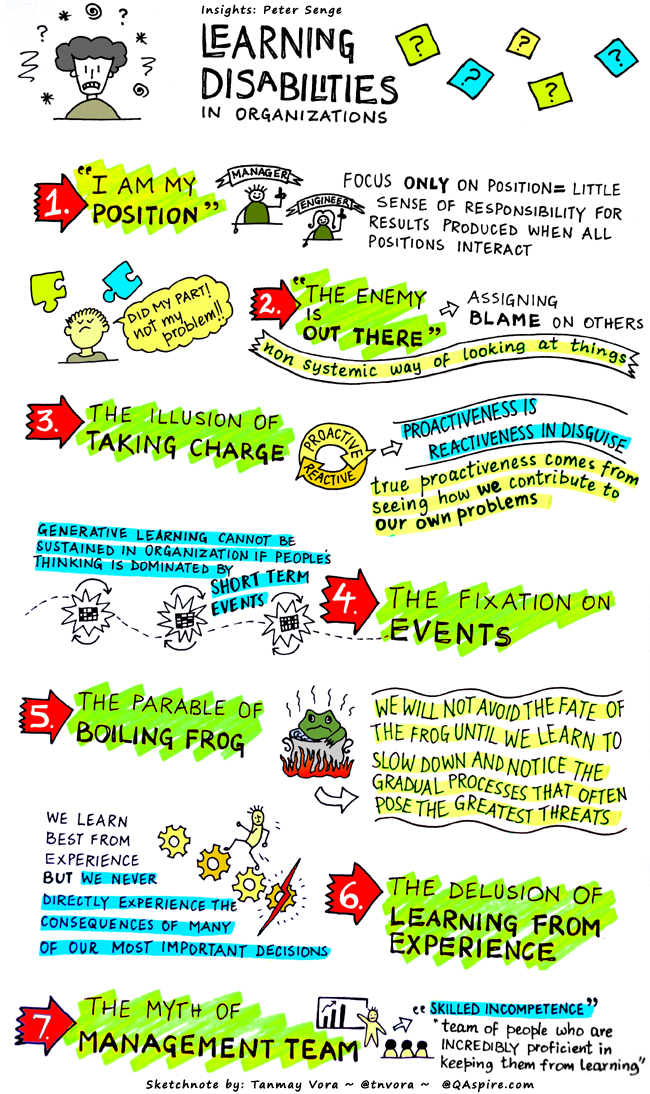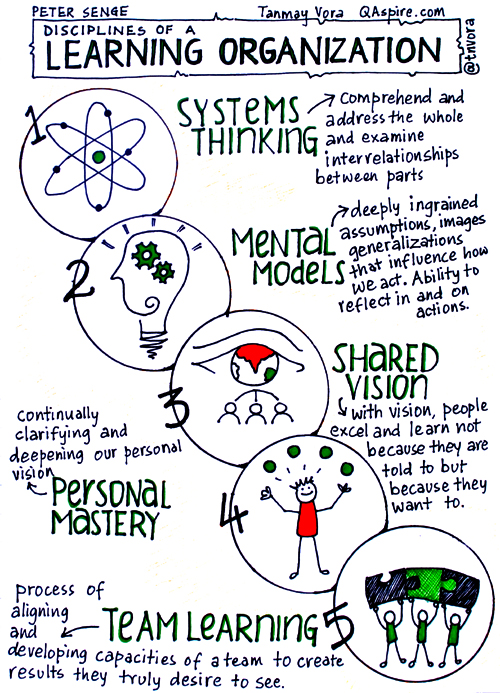Peter Senge: How to Overcome Learning Disabilities in Organizations
Tanmay Vora
As an organization grows, managing the flow demands work items to move from one team/department to another. In quest to make these teams accountable, very specific KPI’s are established and that breeds non-systemic thinking. People look at meeting their own numbers and push the work to next stage and often, what happens is that while people win (in short term), the system fails. Every team meets the KPI numbers and yet, customers remain disgruntled.
Peter Senge, in his book “The Fifth Discipline – The Art and Practice of Learning Organization” outlines 7 organizational learning disabilities. He says,
“It is no accident that most organizations learn poorly. The way they are designed and managed, the way people’s jobs are defined, and, most importantly, the way we have all been taught to think and interact (not only in organizations but more broadly) create fundamental learning disabilities. These disabilities operate despite the best effort of bright, committed people. Often the harder they try to solve problems, the worse the results. What learning does occur takes place despite these learning disabilities – for they pervade all organizations to some degree.”
It then becomes very crucial that we identify clearly these learning disabilities. Here is a sketch note summary of these 7 learning disabilities.

Critical question then is: How to we overcome these learning disabilities and truly create an organization that learns better? Peter Senge answers that question through his 5 disciplines of learning organizations that I have written about in the past. Here is a sketchnote summary of five disciplines:

More on Creating Learning Organization at QAspire:
Very True and I agree to the face that it is a big big problem. But I guess this practice of worrying about own KPI is injected in our blood since childhood and now it is really really difficult if not impossible to remove this.
Hi Bharat, Thanks for sharing your thoughts and I agree about our own conditioning to think in silos. It is quite difficult to address this from KPI perspective since goals/rewards are a poor way to elicit performance. Right leadership behaviors, encouraging systems thinking within groups, focusing on individual mastery AND team learning and having a shared vision are a few ways to increase chances of people thinking beyond their silos.
Brilliant article and Sketch Note!!!
Excellent work Tanmay! Thank you for putting it together and making such a nice summary of Peter Senge’s seminal work.
Brilliant article and good practise advice. If i can just say without offence perhaps not use the term disabilities in this context. As a person who works in the disabilty universe the heading could be seen as misleading.
Thank you for the feedback, @Iggy Patel. While the scope and conversation in the blog is purely directed towards “organizational” or “systemic” disabilities and not towards individual disabilities. In fact, the premise of the post is that people almost always know what works and what doesn’t. It is usually things like systems, culture, beliefs and processes that don’t allow people to act.
The term “Learning Disability in Organizations” was first used by Peter Senge in his book Fifth Discipline many years back.
I went through your website and would like to congratulate you for doing great work in the field of disabililty.
Tanmay